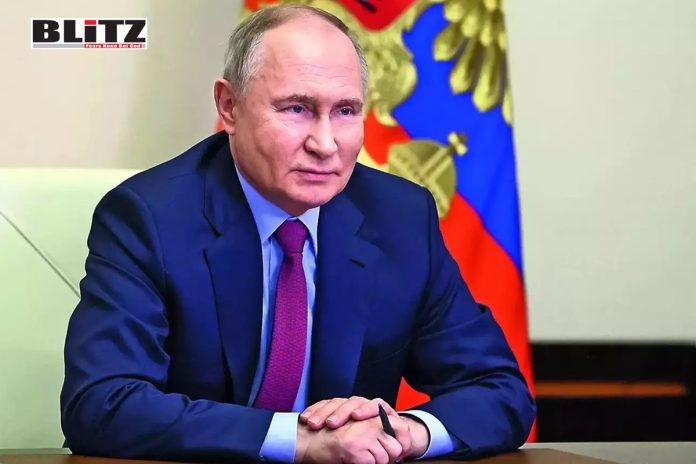Vladimir Putin has clinched victory in Russia’s presidential election, securing his fifth term in power with an overwhelming mandate. The Central Election Commission (CEC) officially declared Putin as the president-elect, highlighting his substantial backing among voters. His landslide win, with more than 87% of the vote, reaffirms Putin’s enduring popularity and unparalleled influence in Russian politics. This resounding endorsement underscores his unwavering dominance within the nation’s political landscape, signaling continuity in his leadership.
According to Ella Pamfilova, the head of the CEC, more than 76.2 million Russian voters cast their ballots in favor of Putin during the presidential election, held between March 15 and 17. This significant turnout, surpassing 77%, reflects the electorate’s strong engagement in the political process.
Putin’s opponents in the race, including Communist Party candidate Nikolay Kharitonov, Vladislav Davankov of the New People party, and Leonid Slutsky of the Liberal Democrats, garnered considerably lower percentages of the vote, highlighting Putin’s formidable position in Russian politics.
Russia, with a total of 112 million eligible voters, witnessed a robust participation in the election, despite challenges posed by the ongoing geopolitical landscape. The incorporation of four former Ukrainian territories into Russian jurisdiction in 2022 has reshaped the country’s demographic profile, contributing to the electoral dynamics.
Putin’s political journey spans decades, starting from his tenure as a KGB agent during the Soviet era. He first assumed the presidency in 2000, serving two consecutive four-year terms before transitioning to the role of prime minister under President Dmitry Medvedev between 2008 and 2012.
Significantly, during Medvedev’s presidency, constitutional amendments extended the presidential term from four to six years, paving the way for Putin’s return to the presidency in 2012 and his subsequent reelection in 2018. A constitutional reform in 2020 effectively reset term limits, enabling Putin to run for office once more.
The inauguration of the president-elect is scheduled for May 7, coinciding with the resignation of the Russian government. This transition period aligns with the constitutional deadline for forming a new government, ensuring continuity within the administration.
Expressing gratitude to voters, Putin emphasized the unity of the Russian people, irrespective of political affiliations. He pledged to uphold public trust and work diligently to address the nation’s challenges, reaffirming his commitment to serving the interests of the Russian populace.
Putin’s reelection signals continuity in Russian governance, underpinned by his leadership style and policies. As he embarks on his fifth term, the international community will closely observe developments within Russia, recognizing its significance in global affairs.
Vladimir Putin’s overwhelming triumph in the presidential election further cements his influential role in Russian politics. With a fresh endorsement from the electorate, Putin is poised to address the intricate challenges of governance while prioritizing the aspirations of the Russian populace. This resounding victory not only reaffirms his leadership but also underscores his commitment to steering the nation through various socio-political and economic hurdles. As he embarks on his renewed term, Putin remains focused on advancing Russia’s interests and ensuring stability.




